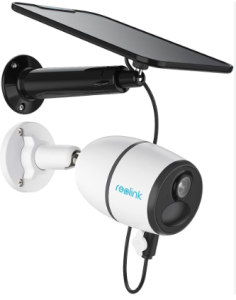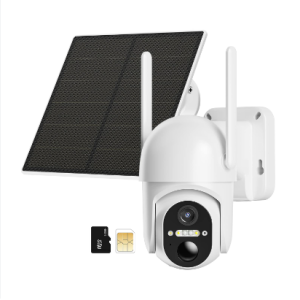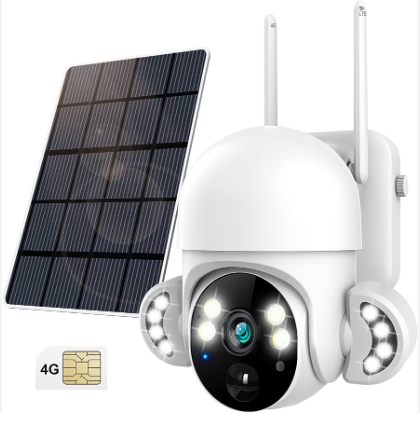Security Cameras Without Wifi
In today’s interconnected world, WiFi-enabled security cameras have become a standard choice for safeguarding homes and businesses. However, there are situations where relying on WiFi might not be the best option due to connectivity issues, security concerns, or simply personal preferences. In such cases, security cameras without WiFi step in as a reliable alternative. In this article, we will delve into the world of non-WiFi security cameras, exploring their benefits, features, and highlighting the best options available.
The Benefits of Non-WiFi Security Cameras
No Dependence on WiFi Connectivity:
One of the most significant advantages of security cameras without WiFi is their independence from wireless networks. These cameras function using wired connections, eliminating concerns related to WiFi signal strength, potential outages, or interference.
Enhanced Security:
Non-WiFi cameras are less susceptible to hacking attempts and unauthorized access since they are not connected to the internet. This added layer of security is particularly appealing for individuals who prioritize privacy and fear the potential vulnerabilities that come with online connectivity.
Stability and Reliability:
Non-WiFi security cameras offer a stable and reliable surveillance solution. With no reliance on external networks, these cameras continue to function seamlessly regardless of fluctuations in WiFi performance or the availability of an internet connection.

Longer Battery Life:
Battery-powered non-WiFi cameras can often provide longer usage periods compared to their WiFi counterparts. Since they are not consistently transmitting data over the network, these cameras conserve energy, making them suitable for remote locations or areas with limited power sources.
Easy Installation:
Many non-WiFi security cameras are designed for simple installation, requiring only a power source and a compatible recording device. This user-friendly setup process appeals to homeowners and business owners seeking a hassle-free surveillance solution.
Best Non-WiFi Security Cameras
Arlo Go:
The Arlo Go is a cellular-connected security camera that operates independently of WiFi networks. It utilizes 3G and 4G LTE networks for data transmission, making it a viable option for remote locations or places with unreliable internet connections. With its weather-resistant design and HD video quality, the Arlo Go offers both reliability and clear visuals.
Reolink Argus 2:
The Reolink Argus 2 is a versatile battery-powered security camera that doesn’t require WiFi. It features a rechargeable battery and can be easily installed indoors or outdoors. The camera offers 1080p resolution, night vision, and two-way audio, making it an excellent choice for non-WiFi surveillance needs.

Blink XT2:
The Blink XT2 is another battery-operated security camera that stands out for its simplicity and efficiency. With its long battery life and easy installation, this camera can be placed virtually anywhere. It offers motion detection, temperature monitoring, and can store footage locally through USB storage.
ZOSI Wired Security Camera System:
For those seeking a wired non-WiFi solution, the ZOSI Wired Security Camera System provides a comprehensive package. It includes multiple cameras with high-resolution capabilities and a central DVR (Digital Video Recorder) for recording and storage. This system is suitable for larger properties that require extensive coverage.
Ring Stick Up Cam Wired:
While Ring is known for its WiFi-enabled doorbell cameras, the Ring Stick Up Cam Wired is a non-WiFi option worth considering. It can be connected directly to an electrical outlet and offers customizable motion detection zones, two-way audio, and cloud storage options.
Choosing the Best Non-WiFi Security Cameras: A Comprehensive Guide
In a world dominated by wireless technology, not all security camera solutions require a WiFi connection. Whether you’re concerned about security vulnerabilities or simply lack a reliable WiFi network, non-WiFi security cameras can offer a reliable alternative. Here’s a comprehensive guide to help you choose the best security cameras without WiFi:
Determine Your Requirements:
Start by identifying your security needs. Consider factors such as the surveillance area’s size, location, lighting conditions (day and night), and the level of detail you need to capture. This will help you select the appropriate camera type (bullet, dome, PTZ, etc.) and features (resolution, lens type, infrared capabilities, etc.).
Wired Connectivity:
Since WiFi isn’t an option, you’ll need to ensure your chosen cameras support wired connectivity. Look for cameras that can be connected using Ethernet cables (RJ45) for both power and data transmission. PoE (Power over Ethernet) cameras simplify installation by carrying both power and data through a single cable.
Resolution and Image Quality:
Opt for cameras with higher resolution, such as Full HD (1080p) or even 4K if possible. Higher resolution ensures clearer and more detailed images, which can be crucial for identifying faces and objects in the footage.
Night Vision:
If you require 24/7 surveillance, ensure that the cameras come equipped with infrared (IR) LEDs for night vision. This will enable the cameras to capture clear images even in low-light or completely dark conditions.
Storage Options:
Non-WiFi cameras typically offer local storage options. Look for cameras that support microSD cards or external storage devices. Some models might also offer network-attached storage (NAS) compatibility, allowing you to store footage on a separate device.
Motion Detection and Alerts:
Choose cameras that feature reliable motion detection capabilities. Motion detection helps conserve storage space by recording only when activity is detected. Additionally, cameras with email or app alerts can keep you informed of any potential security breaches.
Mobile App or Software Access:
While these cameras don’t rely on WiFi for data transmission, some models might offer mobile apps or software that allow you to access the camera’s live feed and recorded footage over a wired network connection. This can be especially useful for remote monitoring.
Weather Resistance:
If the camera will be installed outdoors, ensure it has an appropriate IP (Ingress Protection) rating to withstand the elements. This is especially important if your location experiences harsh weather conditions.
Brand Reputation and Reviews:
Research reputable security camera manufacturers known for producing high-quality products. Reading customer reviews can give you insight into real-world performance and reliability.
Budget Considerations:
Non-WiFi security cameras often come at a lower price point compared to their WiFi-enabled counterparts. Set a budget and explore options within that range while prioritizing essential features.
Professional Installation:
If you’re not comfortable with setting up the cameras yourself, consider hiring a professional installer. They can ensure proper placement and configuration for optimal performance.
By following these guidelines, you can confidently select the best non-WiFi security cameras that suit your specific security needs. Remember that the right camera choice will depend on factors unique to your environment and requirements.
Conclusion
In a world dominated by wireless connectivity, non-WiFi security cameras offer a refreshing alternative for those who prioritize stability, reliability, and enhanced security. From remote locations with limited internet access to areas with concerns about hacking and privacy, these cameras address a range of needs. The Arlo Go, Reolink Argus 2, Blink XT2, ZOSI Wired Security Camera System, and Ring Stick Up Cam Wired are just a few examples of the diverse options available. When choosing a security camera without WiFi, it’s crucial to assess your specific requirements, such as installation ease, battery life, video quality, and storage options, to ensure you select the best fit for your surveillance needs.
FAQs about the Best Security Cameras Without WiFi
Can I use security cameras without WiFi?
Yes, you can use security cameras without WiFi. These cameras operate through wired connections or cellular networks, eliminating the need for a WiFi connection. They are ideal for locations where WiFi signals are weak or unavailable.
What are the advantages of security cameras without WiFi?
Security cameras without WiFi offer several advantages. They are not dependent on WiFi signals, ensuring consistent monitoring even in areas with poor connectivity. Additionally, they tend to be more secure against hacking since they aren’t connected to the internet.
How do non-WiFi security cameras connect to devices?
Non-WiFi security cameras typically connect to devices through wired connections like Ethernet cables. Some models may also use cellular networks for remote viewing. You’ll need to set up a compatible monitor, recorder, or smartphone app to access the camera’s feed.
What power source do these cameras require?
Security cameras without WiFi usually require a stable power source. Most of them rely on electrical outlets for power, so make sure the camera’s installation location has access to a power socket. Some models may offer battery-powered options, though these might have limitations on continuous usage.
Do non-WiFi security cameras have limited features?
While non-WiFi security cameras might lack certain features common in WiFi-enabled models (like remote access and cloud storage), they often compensate with robust local storage options. Many non-WiFi cameras support SD card storage or direct connection to a network video recorder (NVR), providing ample space for video recording and playback.
Remember that the best choice of security camera depends on your specific needs and the location where you intend to install it. Always research thoroughly and consider factors like monitoring capabilities, storage options, and power requirements before making a decision.
